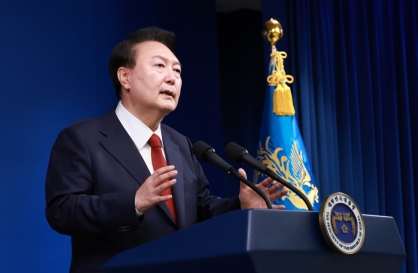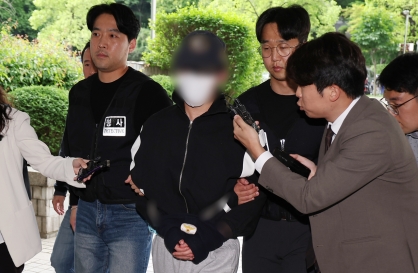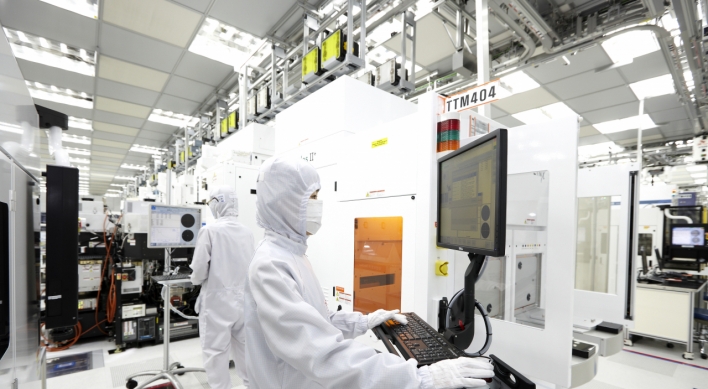Up until a few weeks ago, leaders of parties talked about some kind of “bottom-up” process in nominating candidates for the upcoming National Assembly elections. Both Park Geun-hye of what is now the Saenuri Party and Han Myeong-sook of the Democratic United Party mentioned “open primaries” at each district to find fresh personalities who have the respect of constituents and present positive images of their parties.
But what we now see at the headquarters of these parties are members of respective “nomination review committees” struggling with thick application papers submitted by hundreds of aspirants for 245 districts and 54 proportional representation seats. Ostensibly, absolute power is given to these committees consisting largely of non-political persons. How much influence the current party leadership will have in making the final lists is anyone’s guess.
Some heavyweight members have asked to run in specific districts while some others, such as Hong Joon-pyo of the Saenuri Party and Chun Jung-bae of the DUP, left it up to the decision of the nomination committees. All the applicants are silently waiting for the results like high school graduates after the SAT exams. Those polltaker firms that have been commissioned to make surveys at each district are busy measuring the popularity of applicants.
Politics in 2012 is characterized by the general decline of public confidence in political parties. But as the election draws near, party tickets are still considered the most important factor in winning. The focus of attention is how many seats will the DUP be able to snatch from the southeastern Gyeongsang provinces and whether Saenuri will get any from the southwestern Jeolla and Chungcheong provinces. Again, independents have no strong prospects for the April 11 poll as it seems the Korean electorate have not totally abandoned their faith in parties.
The Ahn Cheol-soo phenomenon that struck the political community last year, culminating in the election of Park Won-soon as Seoul mayor, has certainly contributed to stirring Korea’s political parties out of their long inertia and aimless feuds. Compared to four years ago, the 2012 nominations show unmistakable signs of improvement in that there is less noise from internal disputes over the selection process.
Yet, people are closely watching how the known factions in the major parties are trying to put more names on the lists in behind-the-scenes contests and if money is playing any part in the process. However, we remember claims of impropriety have usually not been made until the lists are made public.
But what we now see at the headquarters of these parties are members of respective “nomination review committees” struggling with thick application papers submitted by hundreds of aspirants for 245 districts and 54 proportional representation seats. Ostensibly, absolute power is given to these committees consisting largely of non-political persons. How much influence the current party leadership will have in making the final lists is anyone’s guess.
Some heavyweight members have asked to run in specific districts while some others, such as Hong Joon-pyo of the Saenuri Party and Chun Jung-bae of the DUP, left it up to the decision of the nomination committees. All the applicants are silently waiting for the results like high school graduates after the SAT exams. Those polltaker firms that have been commissioned to make surveys at each district are busy measuring the popularity of applicants.
Politics in 2012 is characterized by the general decline of public confidence in political parties. But as the election draws near, party tickets are still considered the most important factor in winning. The focus of attention is how many seats will the DUP be able to snatch from the southeastern Gyeongsang provinces and whether Saenuri will get any from the southwestern Jeolla and Chungcheong provinces. Again, independents have no strong prospects for the April 11 poll as it seems the Korean electorate have not totally abandoned their faith in parties.
The Ahn Cheol-soo phenomenon that struck the political community last year, culminating in the election of Park Won-soon as Seoul mayor, has certainly contributed to stirring Korea’s political parties out of their long inertia and aimless feuds. Compared to four years ago, the 2012 nominations show unmistakable signs of improvement in that there is less noise from internal disputes over the selection process.
Yet, people are closely watching how the known factions in the major parties are trying to put more names on the lists in behind-the-scenes contests and if money is playing any part in the process. However, we remember claims of impropriety have usually not been made until the lists are made public.
-
Articles by Korea Herald









![[K-pop’s dilemma] Time, profit pressures work against originality](http://res.heraldm.com/phpwas/restmb_idxmake.php?idx=644&simg=/content/image/2024/05/08/20240508050705_0.jpg&u=20240508171126)









![[Today’s K-pop] Stray Kids to drop new album in July: report](http://res.heraldm.com/phpwas/restmb_idxmake.php?idx=642&simg=/content/image/2024/05/09/20240509050659_0.jpg&u=)